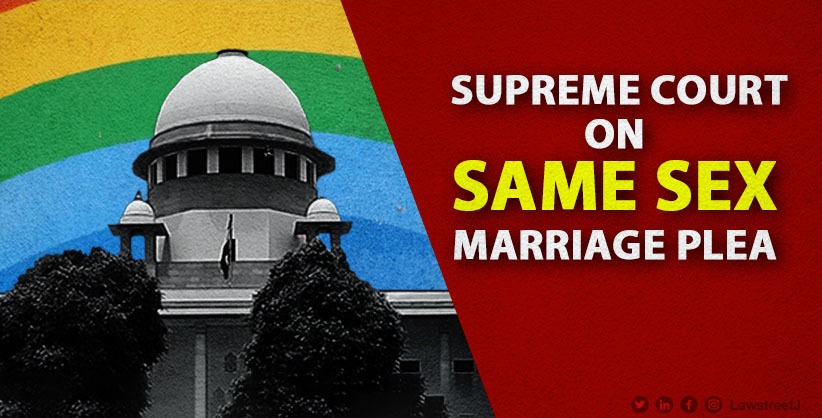NEW DELHI: The Supreme Court on Tuesday asked those seeking legal recognition to same sex marriage as to how far the court can go to allow it, since only Parliament is empowered to legislate on marriage and divorce.
The court also said reading down of the Special Marriage Act would have direct bearing on personal laws and would affect issues of adoption and succession.
Taking up a batch of petitions, a five-judge bench presided over by Chief Justice D Y Chandrachud told petitioners, "You cannot dispute that Parliament has the powers to interfere with the canvas covered by these petitions. There is Entry 5 of the concurrent list. It specially covers marriage and divorce. So the question really is which are the interstices left in which this court can interfere.The test really is, how far can the courts go?"
The court was responding to a contention by senior Advocate Maneka Guruswamy, on behalf of the petitioners that government cannot say that this is a matter to be left to Parliament.
"When fundamental rights of a community are violated, they have the right approach the constitutional court under Article 32 of the Constitution," she said.
The court, however, asked her, "When you are casting a positive obligation on the lawmakers, is it possible to presuppose the creation of law? How do we weave out an obligation or a mandate?"
The bench also said even in cases like 'Vishakha Vs State of Rajasthan' in which guidelines were issued to fill the lacunae in law to deal with incidents of sexual harassment of women at workplaces, the framework set out by the court has to be fleshed out by the legislature.
The bench, also comprising Justices Sanjay Kishan Kaul, S Ravindra Bhat, Hima Kohli and P S Narasimha, also pointed out the most important social security provided to spouses between each other, apart from spousal comfort was entitlement on the death of the spouse.
"If we substitute the word spouse for husband and wife and substitute person for man and woman.what happens when two Hindu women have married or there are two Hindu men who have married and one of them dies. As per the Hindu Succession Act, when Hindu male dies intestate, the property will devolve in particular manner. There is a clear distinction between what a woman will get and a man will get. When a woman dies intestate there is a different line of succession," the bench said.
Guruswamy maintained, "Parliament cannot be the reason to exclude us from this guarantee under the Constitution."
The counsel also submitted that petitioners do not seek any special treatment but a mere workable interpretation of the Special Marriage Act to recognise their relationships.
The bench again pointed out that the Special Marriage Act and personal laws are interconnected. "Hence, any changes in the SMA will have some impact on personal laws as well," it said.
"If we read into the Special Marriage Act, there will have to be changes in other personal laws as well. There is no shying away from this," the bench said.







